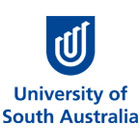Bachelor of Exercise and Sport Science, Bachelor of Psychology (Counselling and Interpersonal Skills)
Bachelor of Exercise and Sport Science, Bachelor of Psychology (Counselling and Interpersonal Skills)
This unique double degree will provide you with expertise in the areas of exercise and sport science, psychology, counselling, and behavioral research methodology. With a strong practical and multi-disciplinary industry focus you will graduate with a specialised set of skills to meet emerging market needs. The exercise and sport science…
Categories
COURSE DESCRIPTION
This unique double degree will provide you with expertise in the areas of exercise and sport science, psychology, counselling, and behavioral research methodology. With a strong practical and multi-disciplinary industry focus you will graduate with a specialised set of skills to meet emerging market needs.
The exercise and sport science component prepares you to provide counselling to athletes, rehabilitation services and to enhance the physical and mental wellbeing of the population. The psychological science component provides a balance of courses in psychology theory and counselling – for graduates this means you will enter the workforce with a strong understanding of psychology, as well as the analytical, communication and interpersonal skills needed to work with individuals, groups and communities.
What you’ll learn
This unique double degree will provide you with expertise in the areas of exercise and sport science and psychology. You will graduate with a specialised set of skills to meet emerging market needs. You will gain expertise in human thought and behaviour, develop cognitive and creative skills to solve real-world scientific problems, and apply your knowledge in diverse contexts such as sports and mental health.
The exercise and sport science component prepares you to provide exercise advice, deliver strength and conditioning services, biomechanical analyses, and skill acquisition knowledge to enhance the physical and mental wellbeing of generally healthy individuals, ranging from children to elite athletes to older persons.
The psychology component provides a balance of courses in psychology theory and counselling – for graduates this means you will enter the workforce with a strong understanding of psychology, as well as the analytical, communication and interpersonal skills needed to work with individuals, groups and communities.
During the first two years you will study exercise and sport science courses, with an introduction to psychology, which will give you a solid understanding of:
human anatomy and physiology
fundamental movement skills
skill acquisition
physical activity and health.
The third and fourth years have a strong practical focus, where you will develop critical thinking and practice-based skills through learning about:
develop influencing skills and intervention strategies
gain knowledge of psychological disorders, including their causes and range of treatments
study the relationship between psychology and physical activity.
Your career
As the health and wellbeing industry continue to grow, employment prospects for graduates of this double degree are promising. Careers to consider include:
Athlete Counsellor (with further study): concerned with the wellbeing, mental functioning and physical performance of athletes
Exercise Scientist: use a combination of biomechanics, physiology, and psychology to help assess and ultimately increase an individual’s fitness, sporting performance and general health
School Counsellor (with further study): work across primary and secondary schools to facilitate and advocate student wellbeing
Strength and Conditioning Coach: prepare athletes for high performance, enabling them the greatest advantage in competition
Sport Psychologist (with further study): working with athletes and coaches to increase athletic performance through psychology influences
REQUIREMENTS
Applicants are required to meet one of the following criteria with a competitive result, and demonstrate that they fulfil any prerequisite requirements and essential requirements for admission:
Recent secondary education:
Meet any prerequisite requirements with a minimum grade of C- or equivalent and
Complete secondary qualifications equivalent to SACE, or
Complete the International Baccalaureate Diploma with a minimum score of 24 points
or
Higher education study
Complete or partly complete a recognized higher education program at a recognized higher education institution
or
Vocational Education and Training (VET)
Complete an award from a registered training organisation at Diploma level or above
or
Work and life experience
Hold completed secondary qualifications equivalent to SACE obtained more than 2 years in the past
English language requirements:
IELTS score of 6.5; TOEFL iBT score of 79 with no band less than 20; TOEFL paper-based test (PBT) score of 577 with TWE of 5.0; Cambridge CAE/CPE score of 177; Pearson’s test of English (Academic) (PTE) score of 58 with no communicative score less than 58; CELUSA score of AE5.
EDUCATIONAL INSTITUTION
The University of South Australia is a globally connected and engaged university with industry-informed teaching and research that is inventive and adventurous. Ranked in the world’s top 50 under 50^ and with 100% of assessed research rated at or above world-class*, the University is young, innovative and offers students the chance to gain real-world experience.Focused on life beyond the classroom, the University of South Australia offers a practical approach to teaching and learning. Degrees are designed in partnership with industry, giving students opportunities to gain the latest insights and trends and ensuring they graduate career ready.^Ranked in the World’s Top 50 Under 50 – Ranked #29, 2021 QS Top 50 Universities Aged Under 50 and Ranked #46, 2022 THE Young University Rankings*2018 Excellence in Research for Australia (ERA), 4-digit Fields of Research




